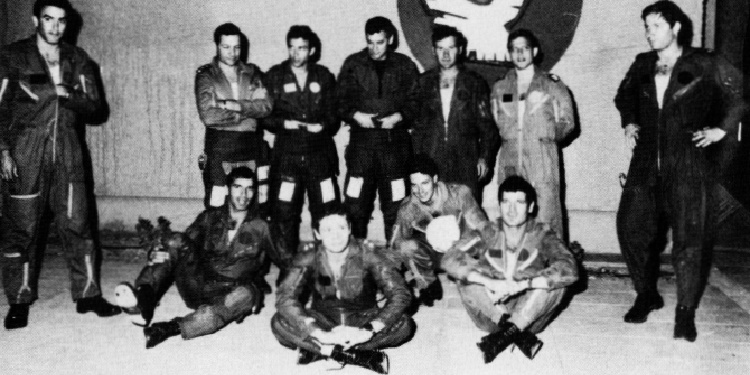A Yom Kippur War Hero
Stand for Israel | October 3, 2022

As the Jewish people prepare to observe Yom Kippur, we look at a hero of the Jewish state and an Israeli You Should Know who proved his mettle during multiple conflicts defending the Holy Land, including the Yom Kippur War of 1973. This is the story of Amir Nachumi, who was thrust into a position of leadership on the holiest day of the year.
Six-Day War in a Tank
Born to a Jewish family in Jerusalem, Amir Nachumi first enlisted in the IDF at the age of 17. After he didn’t pass the Israeli Air Force (IAF) flight training course, Amir joined the Armored Corps. After his compulsory service, Amir then studied chemistry and physics, graduating right as the Six-Day War of 1967 began. During that war, he served in an IDF tank, helping Israel defeat her enemies and retake the Holy City of Jerusalem.
After the Six-Day War was over, Amir reenlisted in the IAF’s flight school, which he completed. Israel continued to battle her enemies for the next few years during the War of Attrition, and Amir flew 50 combat missions before becoming an IAF instructor.
Yom Kippur War in the Air
In October 1973, Israel’s enemies carried out the surprise attack that would begin the Yom Kippur War. While Amir wasn’t qualified as a flight leader, on the morning of October 6, he was promoted by phone. When Egyptian planes struck Israeli positions in the Sinai, no orders had called for Israeli planes to scramble. Nachumi made the decision to fight, himself, recalling:
I decided to take off — the controller was screaming that there were orders not to take off. However, I decided that the orders were 400 kilometers away and they didn’t know what was going on. I cranked the engine and told my number two to do the same and to scramble as quickly as possible. Standby is very close to the runway so we cranked the engines, went to the runway, and took off. I looked back to see that number two was airborne and that everything was ok, and I saw smoke plumes on the runway, like cotton balls. And I didn’t understand. I told my navigator, “Look! What do you make of this?” He said, “They are bombing the runway, this must be war!”
More than 30 Egyptian planes had begun to attack the airbase. If Amir had not disobeyed orders and made the choice to scramble, the two planes would never have been able to take off. Amir shot down two enemy planes with missiles, and two more with his plane’s cannon. His engine stalled, but Amir was able to relight it and then shot down two more enemy MiGs with missiles. After the war was over, Amir and his fellow airmen were awarded the Medal of Distinguised Service for their heroism.
Operation Opera
In 1978, Amir was promoted to squadron leader, and then two years after that, began to lead the IAF’s second F-16 squadron. It was with this squadron that he helped lead Operation Opera, Israel’s destruction of an Iraqi nuclear reactor. He also shot down six enemy fighter planes during the 1982 Lebanon War, giving him a total of 14 kills.
After being promoted to Brigadier General in 1989, Nachumi commanded the IAF’s Air Group. It was in this role that he commanded the planes during Operation Solomon, which airlifted Ethiopian Jews to the Holy Land in 1991. Retiring five years later, Amir Nachumi completed a career that saw him serve the Jewish state with bravery and daring.
